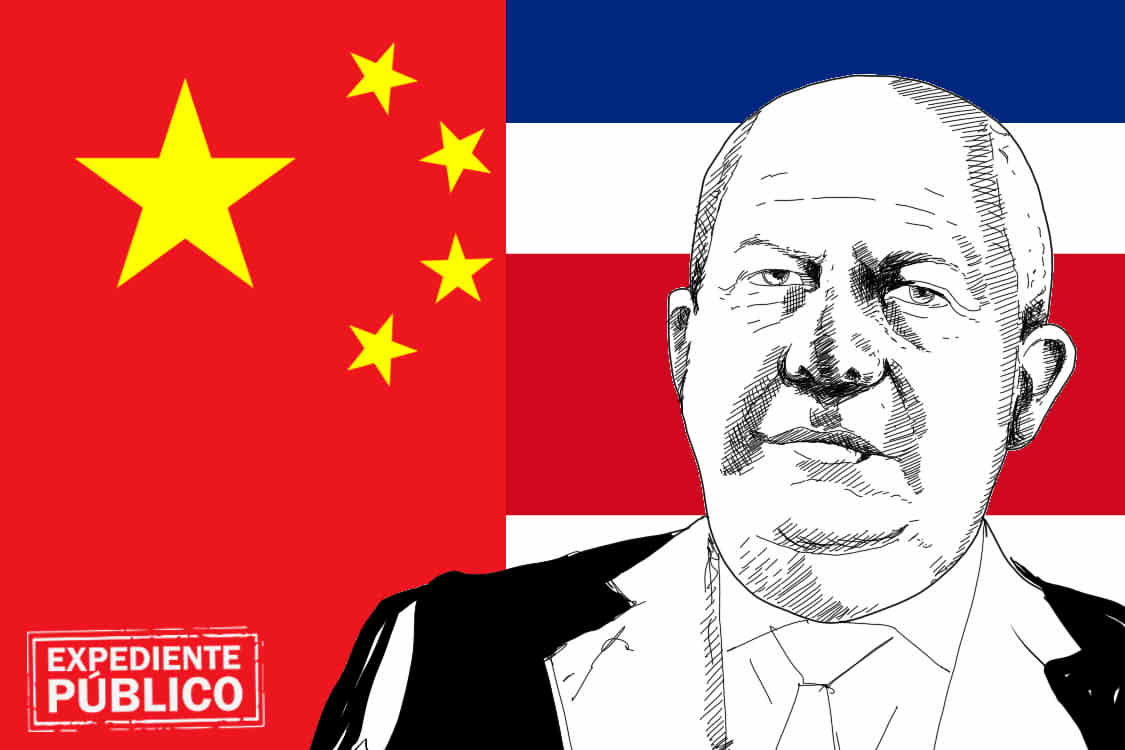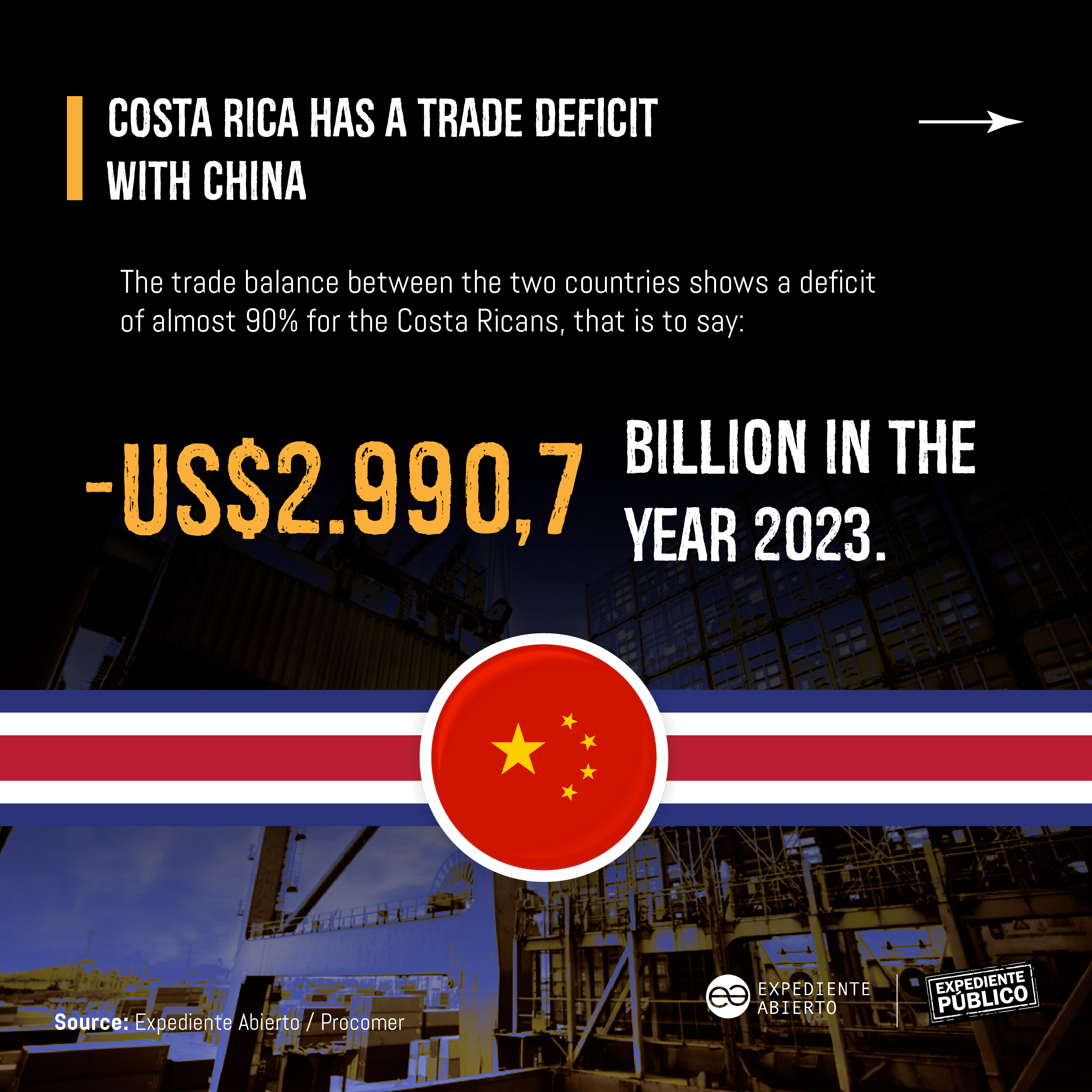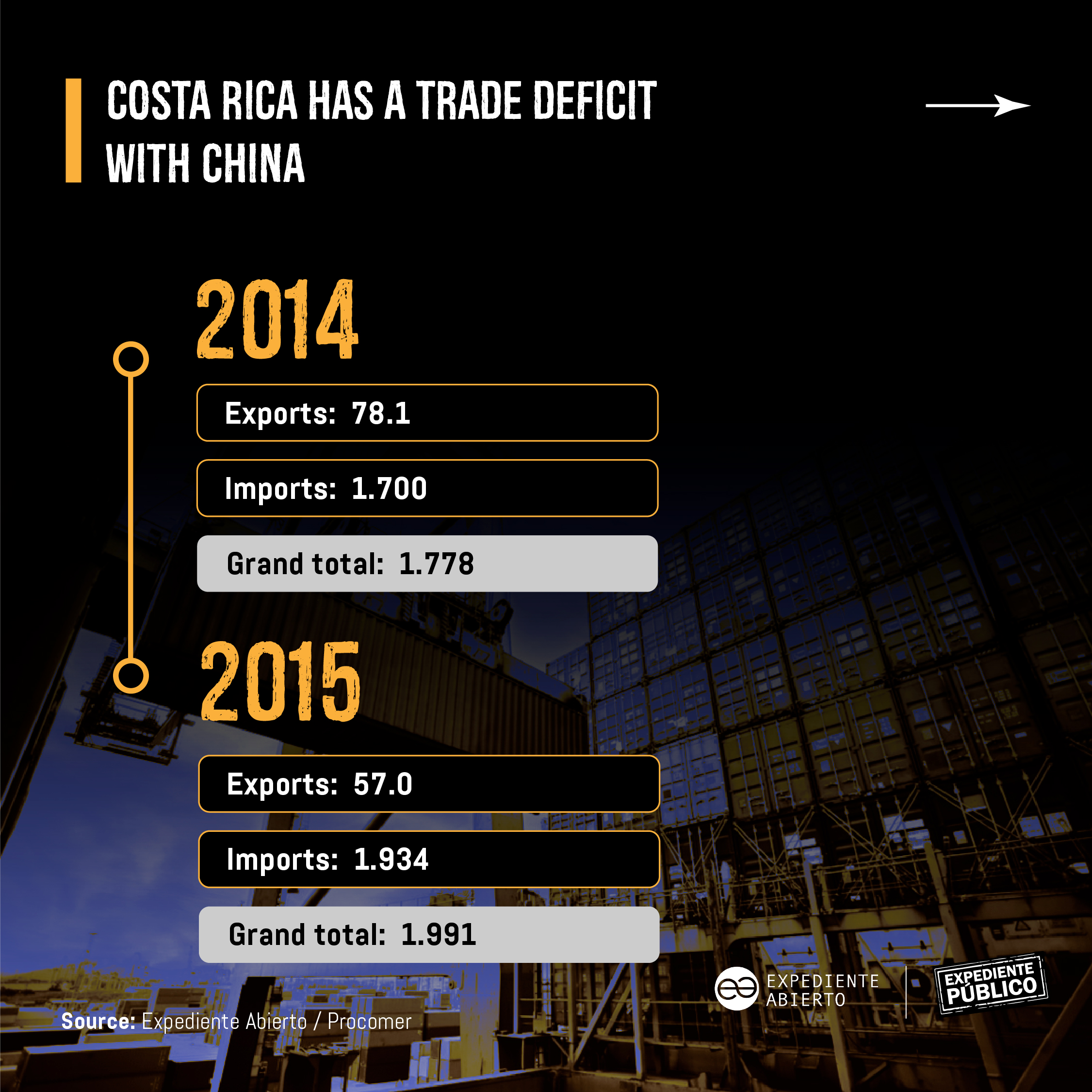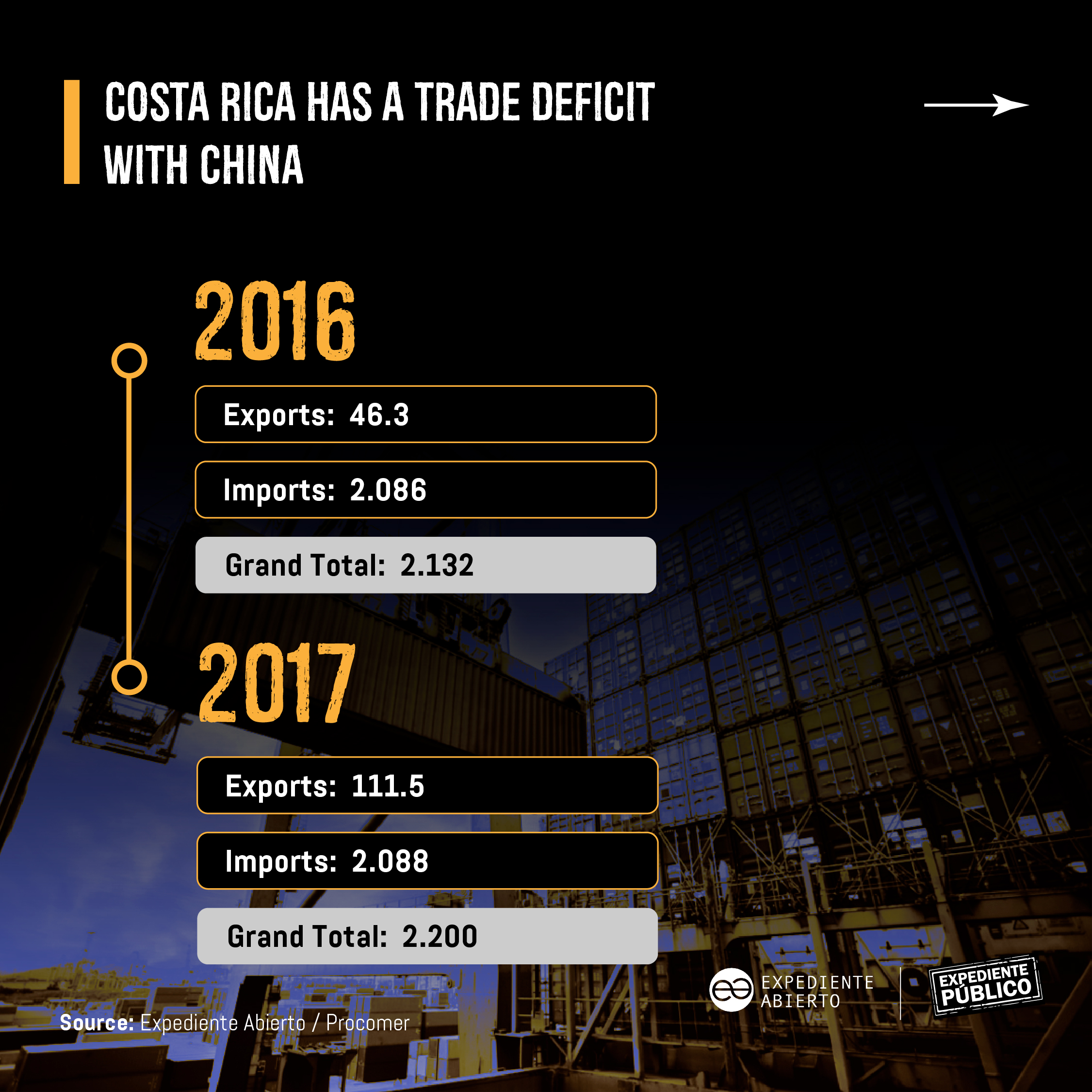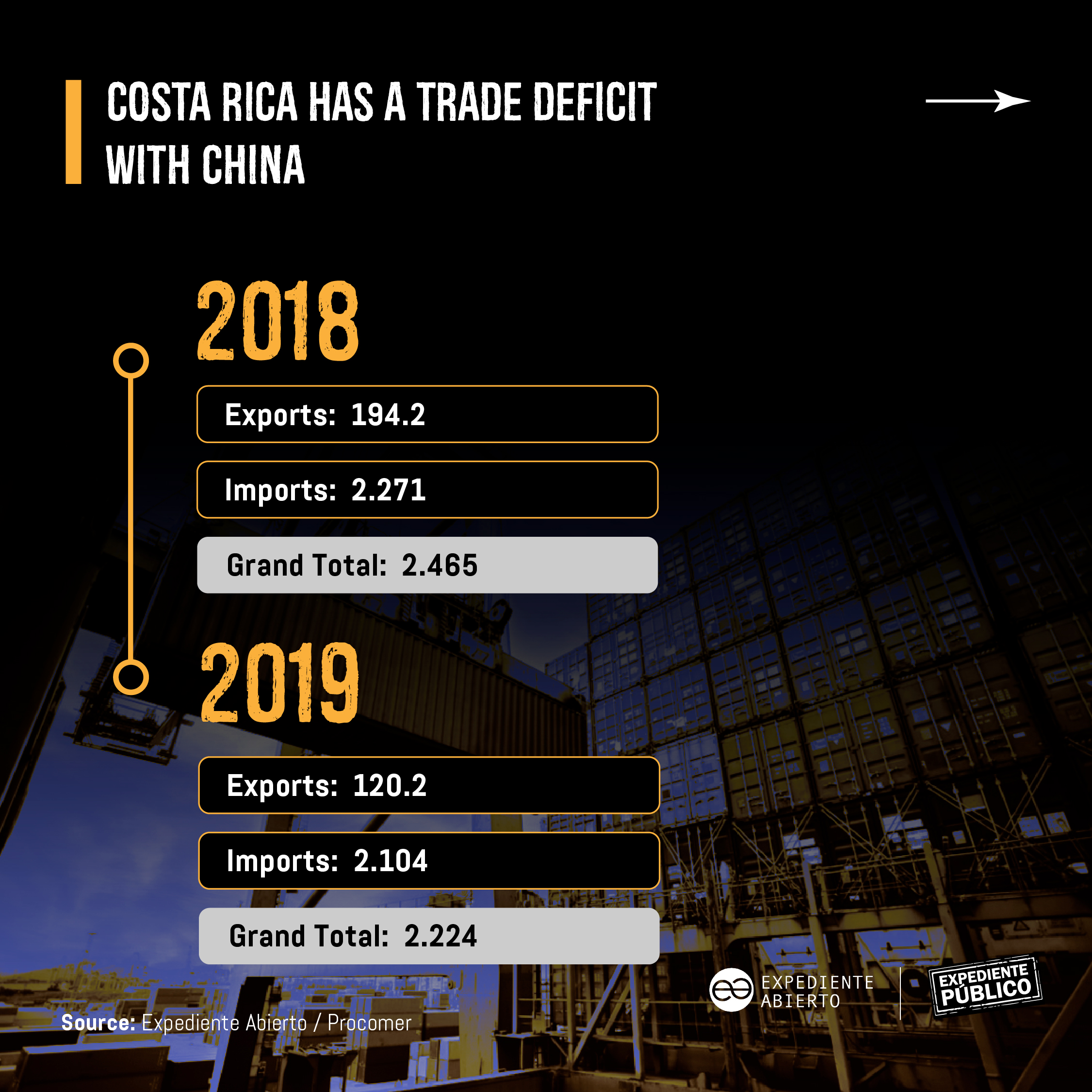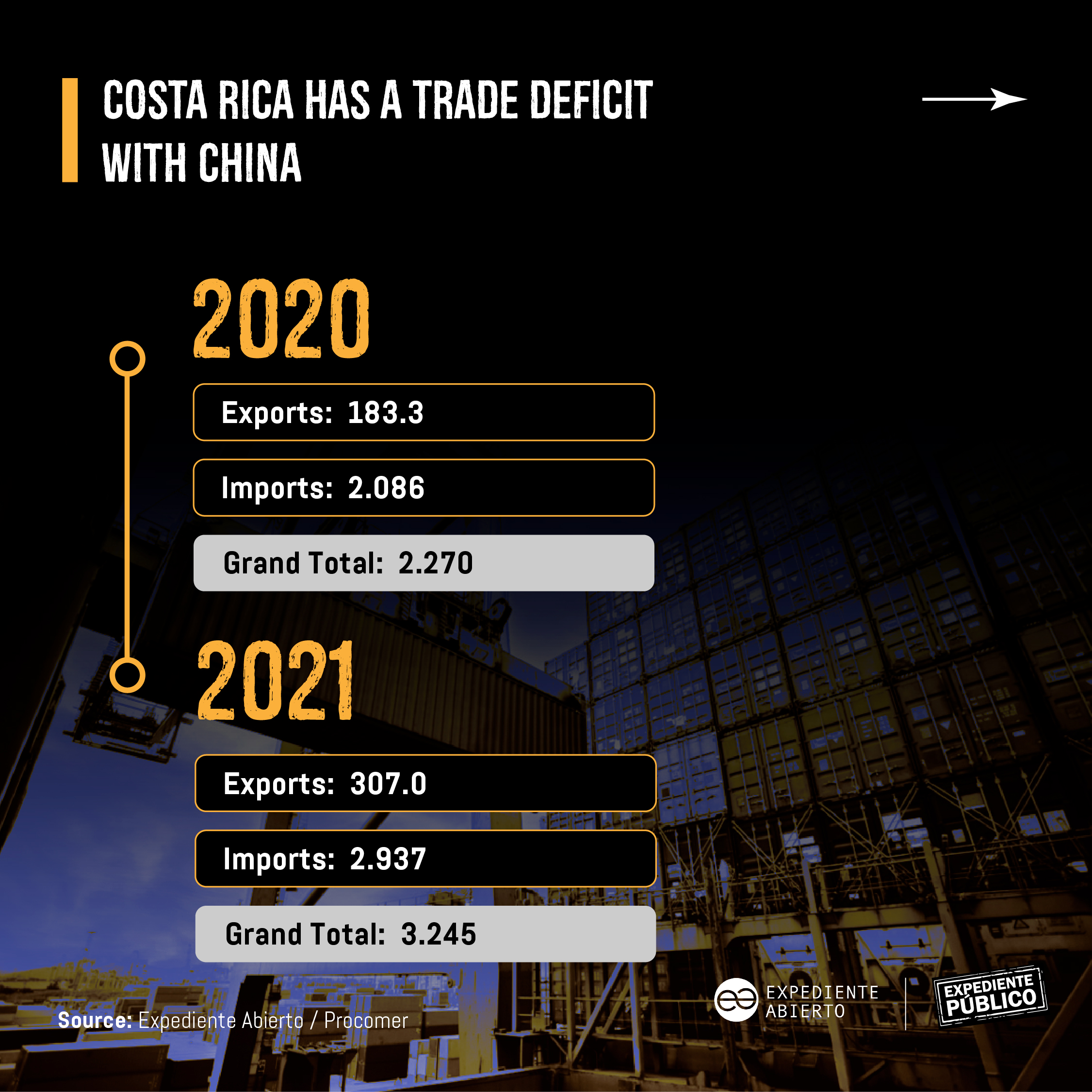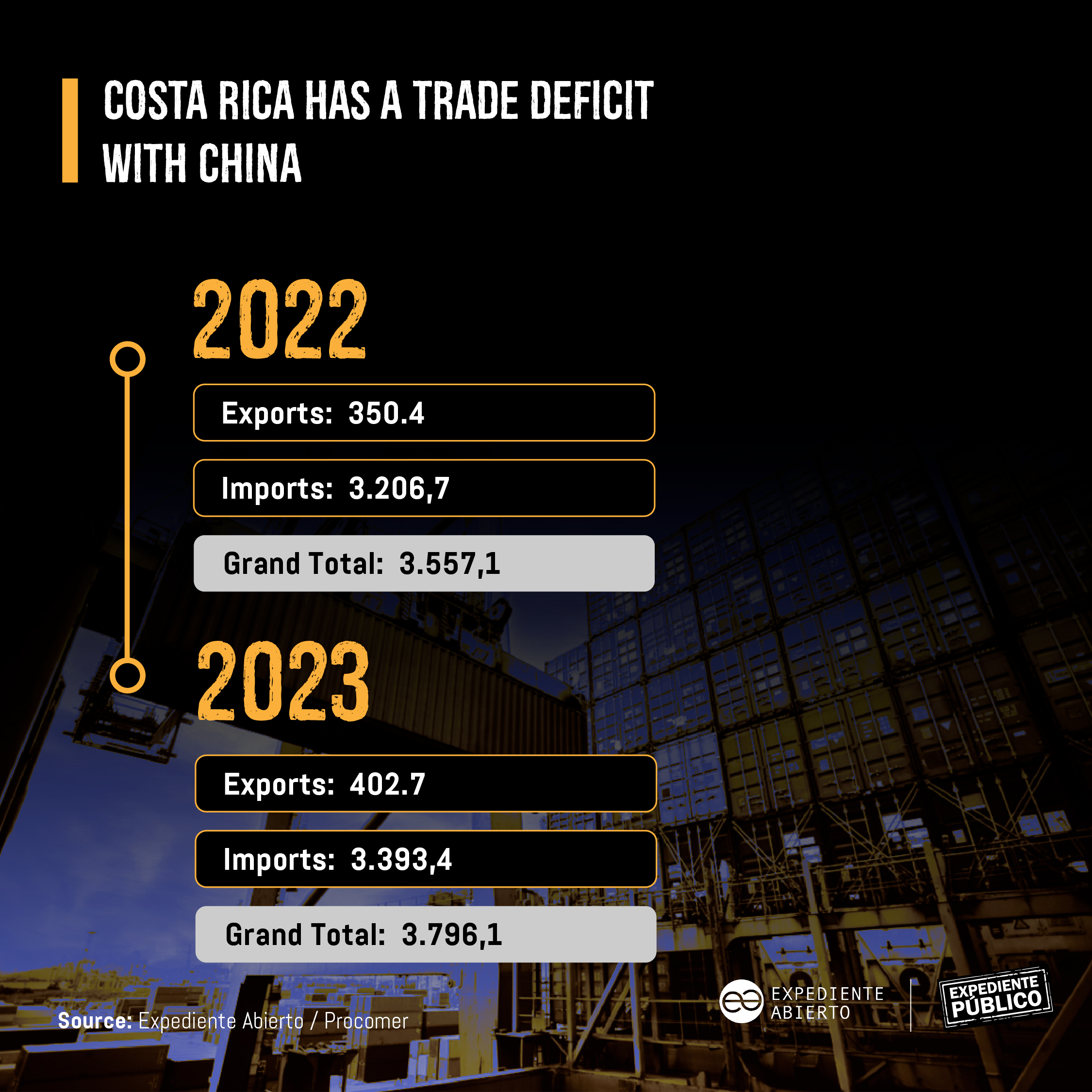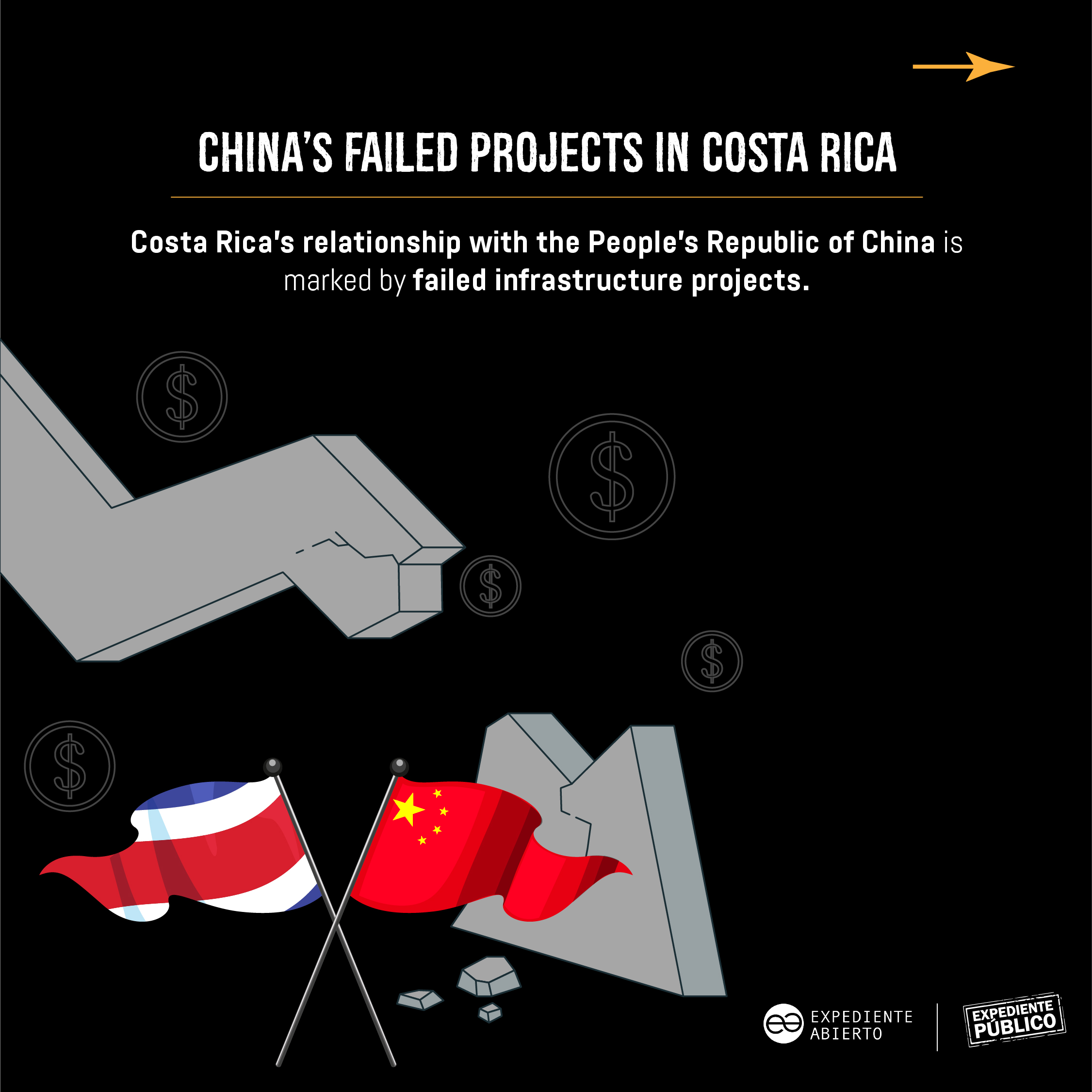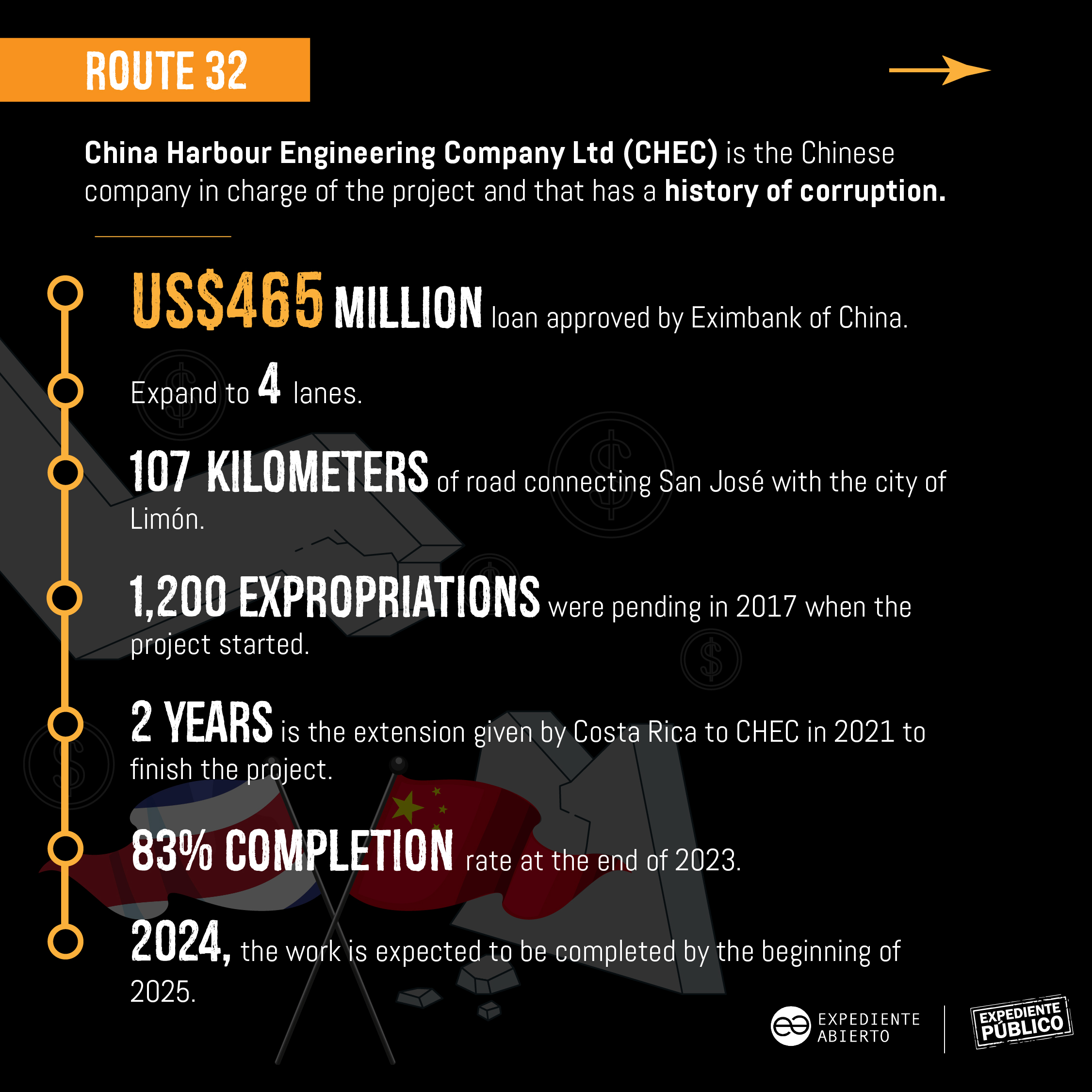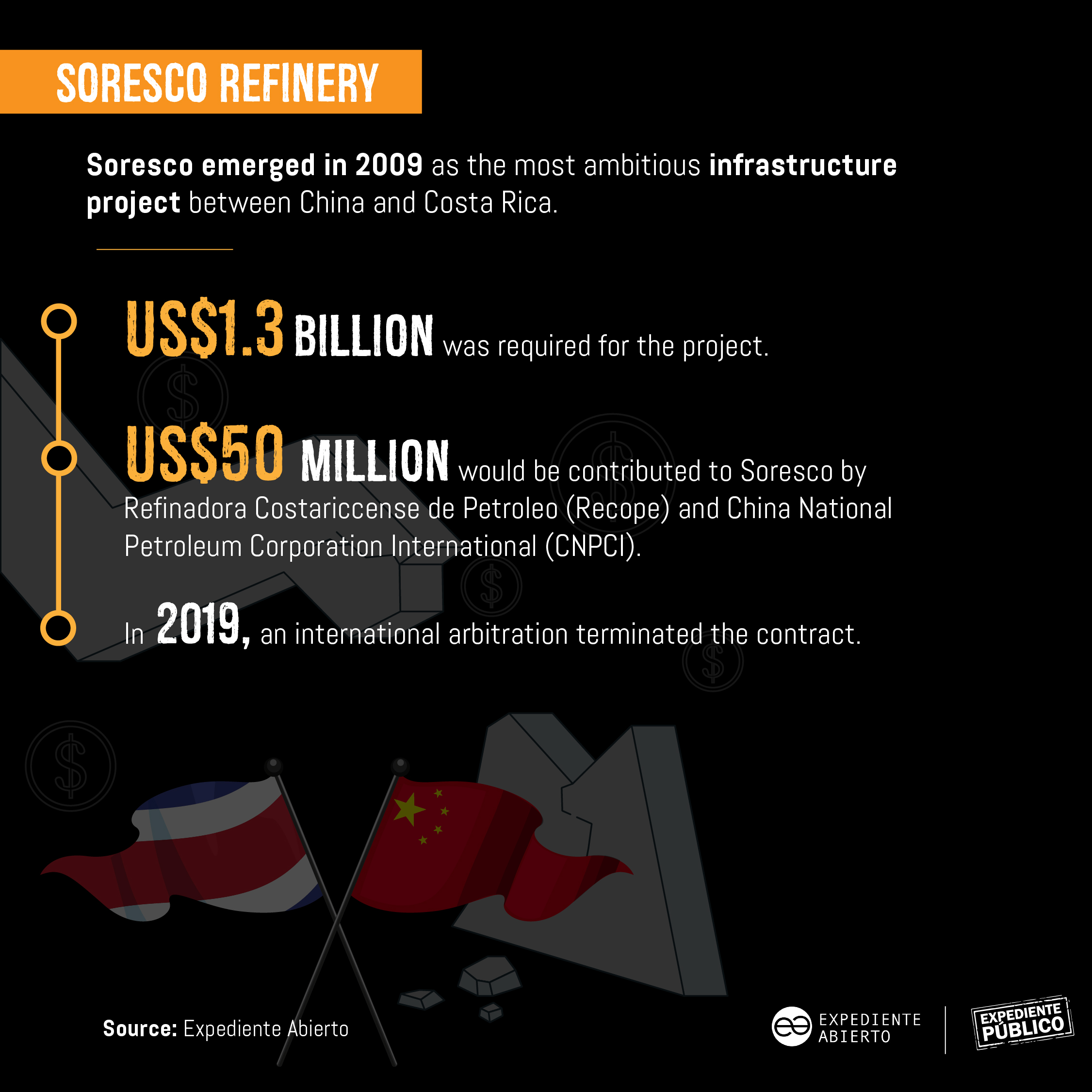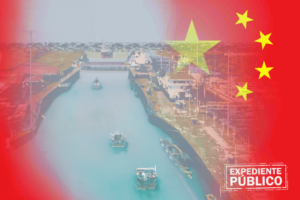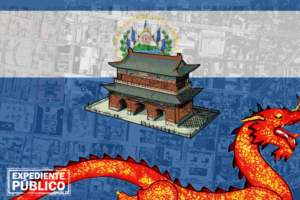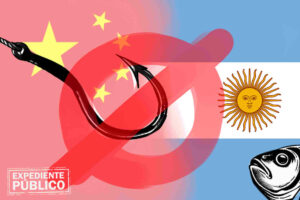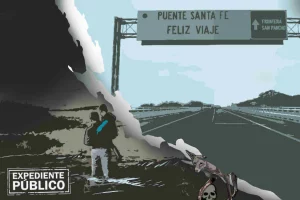* The case study: Chinese influence in Costa Rica, prepared by the research center Expediente Abierto, analyzes aspects related to the «predatory practices of some Chinese companies» in that country.
** In the context of that report, former Costa Rican President Luis Guillermo Solís explained that relations with the People’s Republic of China «have had ups and downs» in these 17 years of diplomatic relations.
*** The case of Route 32 and the Soresco refinery or low trade stand out among the negative aspects of these relations.
Expediente Público
Although Costa Rica was the first Central American country to formalize diplomatic relations with the People’s Republic of China, on June 1, 2007, 17 years later, it has ups and downs in trade issues, failed investments and a controversy around 5G telephone networks.
This was stated by former Costa Rican President Luis Guillermo Solís (2014-2018), who acknowledged that the relationship with China «has had ups and downs,» mainly on trade issues.
Former President Solís participated as a primary source in Expediente Abierto’s case study “China’s influence in Costa Rica.” and was interviewed in person by journalists from Expediente Público.
Subscribe to the Expediente Público newsletter and receive more information
The focus of this intervention was, in addition to trade issues, some political agreements between China and Costa Rica that were established during his administration, infrastructure projects, and the Belt and Road Initiative.
Trade does not favor Costa Rica
«The relationship has not continued to be as favorable to Costa Rica in terms of international trade as it was at other times when we exported more than a billion dollars per year in Intel microchips to China,» said the former president.
«It is true that we have not been able to exceed certain thresholds that are very low in terms of foreign trade, despite the fact that we have the first Free Trade Agreement between China and Central America,» Solís acknowledged.
The Free Trade Agreement was signed on April 8, 2010, still under the mandate of Óscar Arias (2006-2010), but the agreement currently does not help to overcome the trade deficit with China.
The Expediente Abierto study highlights that, although Costa Rica began to export more to China in the first years, bilateral trade was quickly unfavorable, so today there is a deficit of 90%, about US$2.990 billion in 2023.
China’s blockades against Costa Rica
Although the FTA was one of the first and «fastest negotiated in the history of the Central American country,» there are other causes that do not allow for an increase in trade with China, Solís says.
«The Chinese have a non-tariff protection regime that is very high, which is very strong. So, it took us almost ten years to be able to export to China two products that for us are normal in other countries, which are shrimp and pineapple,» explained the former president.
Costa Rica’s exports reached US$18.244 billion in 2023, with the United States being the main destination (46%), followed by the Netherlands (8%), Guatemala (5%), Belgium (5%), and Nicaragua (4%), according to statistics from the Costa Rican Foreign Trade Promotion Office (Procomer).
Foreign trade with China in 2023 represented just 2%, according to Procomer statistics with US$402.7 million sold.
Solís reiterates that «at the moment the trade balance deficit is very unfavorable for Costa Rica and very favorable for China.»
You can read: Honduran Port Company shields agreement with Chinese company from secrecy
Unequal relations
Luis Guillermo Solís governed Costa Rica between 2014 and 2018, and during his administration, after a state visit to Beijing in 2015, a Joint Action Plan was signed that was characterized by cooperation and allowed the strengthening of relations between the two countries.
To date, however, relations do not seem to leave the desired results to Costa Ricans, due to the fact that they have a «trade that has grown little» and infrastructure projects that «have had difficulties.»
«If you were to say to me, well, but in general, how do you appreciate China’s presence today? I would say that it is a bittersweet presence, that it has some things that go better and others that do not go so well,» he said.
Over time, these relationships took on a new dimension, «which is perhaps the most strategic of all, the one that has to do with high technology and the establishment of the 5G network, which is one of China’s specialties,» Solis added.
Is the U.S. getting in the way of relations with China?
The former president calls China the «great power of the 21st century.» He affirms that it is a «geopolitical force of a global nature that admits no doubt» and that in 2007 it granted Costa Rica «exclusivity» and an «advantage that had to be taken advantage of,» which at that time constituted an «opportunity that was not objected to by the United States.»
«The United States let China enter Latin America (…), the one that invites China not objecting to its presence in Latin America was the hegemonic power in Latin America that was the United States,» Solís insisted.
Also: Honduras’ 911 emergency system, between politicization and Huawei’s shadow
However, the Expediente Abierto study recommends «to avoid a fragile position in the face of China’s influence, Costa Rica should preserve and deepen ties with the United States, benefiting from the investments that its main trading partner offers in various sectors such as microchips.»
«Likewise, it would have to rethink the FTA with the Asian giant, exploring new export niches that allow it to send a greater amount of manufactured products to Asia and, why not, expand trade with other allies in the area, such as Singapore and Korea,» details the study by the Central American think tank.
On the other hand, in April of 2024, Beijing complained to Costa Rica about the statements of the U.S. Deputy National Security Advisor, Anne Neuberger, who during her visit to San José warned of «risks» due to China’s involvement in telecommunications.
Neuberger, along with Ambassador-at-Large for Cyberspace and Digital Policy Nathaniel C. Fick and U.S. Ambassador Cynthia Telles, met with President Rodrigo Chaves and members of his Cabinet in San Jose to discuss shared priorities related to cybersecurity and telecommunications.
China defends itself
The Chinese embassy in Costa Rica in a statement described the statements of the U.S. officials as «pure lies.»
On the other hand, the deployment of 5G technology in Costa Rica generated great controversy due to the decision of the presidency of Rodrigo Chaves to put requirements that would leave out Chinese industries such as Huawei.
Chaves signed a regulation on security measures for fifth-generation (5G) networks, which began on August 31 with its publication in the official newspaper La Gaceta.
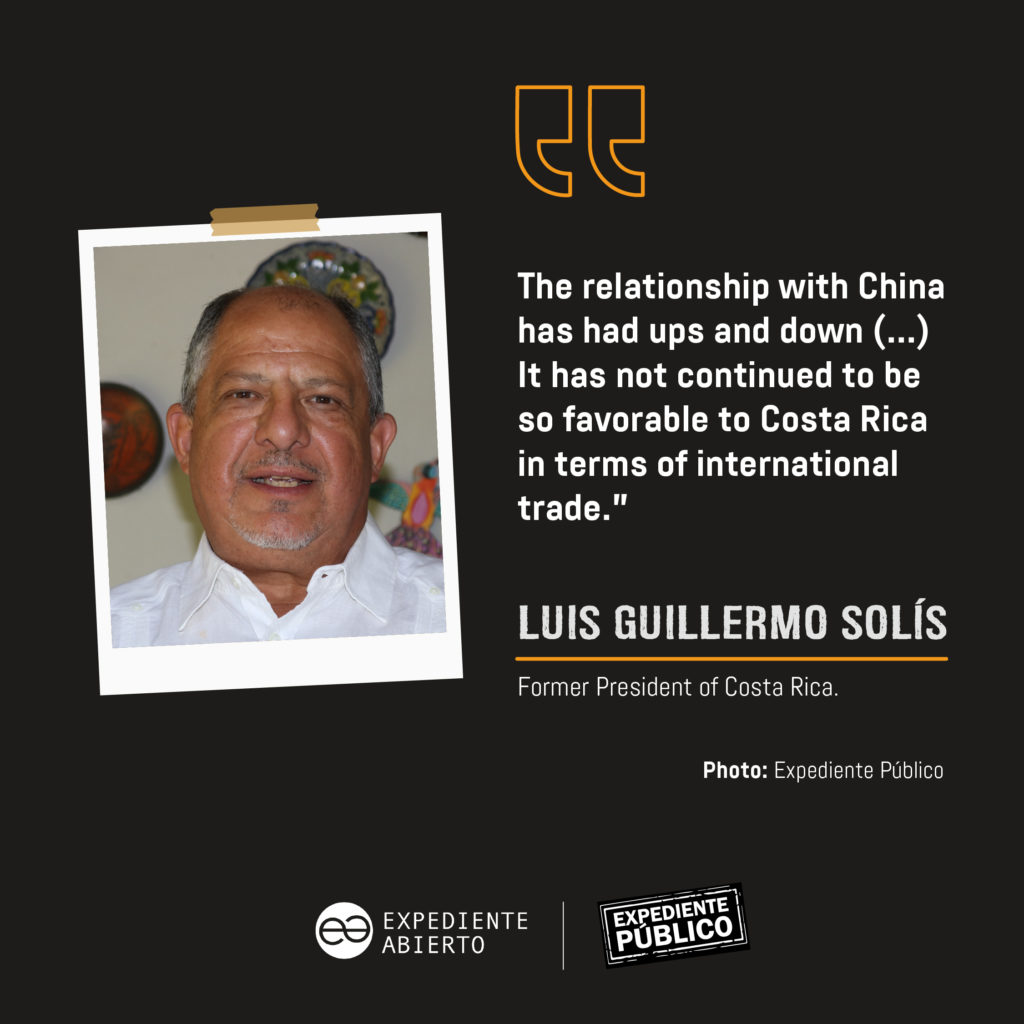
«Being a historian and knowing quite well how the powers behave, I do not detract from the accusations, nor from the opinions against it, because they are already fights between states that are seeking economic benefits and geopolitical positioning, and in areas that, in the case of the United States, are highly sensitive for its national security,» Solís highlighted.
On the other hand, not only the United States, but other economic powers, have banned Chinese companies from participating in the 5G telecommunications market, for fear of espionage and mishandling of users’ personal data.
Route 32, a failed project
According to the report: «Case study: Chinese influence in Costa Rica»,the San José stadium, located in La Sabana park, inaugurated just four years after the establishment of diplomatic relations and the Cañas-Bebedero water supply project in the canton of Cañas, in the province of Guanacaste, inaugurated in 2022, are some of the Chinese works donated to the Central American country that had a good development.
But there are other works that have not had a good ending in this period of 17 years.
During Solís’ administration, Costa Rica’s Legislative Assembly approved a US$465 million loan with the Export-Import Bank of China (Eximbank) to widen a 107-kilometer stretch of Route 32, which connects San José, the capital, with the city of Limón on the Costa Rican Caribbean to four lanes.
You may be interested in: Honduras: Company that won the 911 software purchase process has been a partner of Huawei
The project has been going on for 10 years and has not been completed, and the construction is being carried out by the China Harbour Engineering Company LTD (CHEC), one of the Chinese companies tainted by corruption, as revealed by Expediente Público in the investigation entitled: Honduras negotiates port projects with Chinese company tainted by corruption worldwide.
In 2020, it was discovered that CHEC took heavy machinery from Costa Rica to Jamaica, «without having the corresponding permit from the Ministry of Public Works and Transport,» according to the think tank Expediente Abierto in the case study «China’s influence in Costa Rica.«
At the end of 2023, the overall progress of the work was 83% and it is expected to be ready by the end of this year or the beginning of next 2025.
Expropriations on Route 32
The work was delayed due to the delay in expropriations and relocation of services. Of 254 files to process expropriation, only 52 were resolved. Likewise, of 99 kilometers of fiber optics, only 22 could be relocated.
Expediente Abierto’s analysis shows that from the beginning there were voices critical of the development of the project. In 2014, the University of Costa Rica urged the Legislative Assembly to reject the proposed law, considering it the bearer of «serious vices of unconstitutionality that harm national sovereignty.»
On the other hand, the Costa Rican Chamber of Construction (CCC) drew attention to some elements «potentially compromising for the Costa Rican State, both in the development of the work, as well as in its relationship with CHEC, the Chinese government, and the payment of interest on the loan.»
In 2017, the government of Luis Guillermo Solís authorized the start of the work despite the fact that there were still 1,200 expropriations pending, one of the largest delays that persist to date, the former president acknowledges.
«On Route 32, a serious breach by the Costa Rican State has been the issue of expropriations, which are extremely delayed. When the first contract for Route 32 was negotiated, there was not even a preliminary project, which can be formally discussed. So we had to renegotiate something that was not much known,» Solís explained.
According to the former president, the Costa Rican government changed the «financing priorities of Route 32» several times.
«As far as I understand, funds that were destined for (Route) 32 to, for example, make expropriations, were transferred to other projects that were considered more priority and that could give more profit to the administration than a route that was probably not going to be finished in the respective four-year term,» added the former president.
Report and investigate breaches
Some of these Chinese companies have a long history and poor record for non-compliance, alleged acts of influence peddling. and bribe payments in the region of the Americas.
«Where there have been breaches or illegalities, and little transparency or imposition of conditions on the part of Chinese companies, it has to be investigated. And if they are abuses, which have led to acts that are harmful to the public interest, they have to be denounced,» the former president added.
Expediente Abierto’s analysis exposes other aspects related to the «predatory practices of some Chinese companies» that develop infrastructure projects in Costa Rica and «frequently incur in bad practices and violate national and international legislation,» as happened with the failed Soresco Refinery project.
Soresco, according to Expediente Abierto, emerged as the «most ambitious infrastructure project between China and Costa Rica» in 2009, under the second term of Óscar Arias, for which it would require 1.300 billion dollars. This project sought to improve and operate an existing refinery in the province of Limón for 15 years.
«I never really understood what the point of having an oil refinery in Costa Rica was, whose footprint, rather, we were trying to eliminate,» Solís criticized.
«If it had been a pilot project for the generation of new fuels, the production of green fuels, hydrogen (…), one would have found some sense, but that was a refinery that did not coincide with the logic of our development,» explained the former president.
The Belt and Road with Costa Rica
In September 2018, China and Costa Rica signed a memorandum of understanding on cooperation under the framework of the Belt and Road Initiative. Epsy Campbell, vice president during Carlos Alvarado’s term, was in charge of the signing.
The agreement, according to the case study of Expediente Abierto, did not indicate «specific cooperation measures or the development of concrete projects for Costa Rica.»
Solís recognizes that the Belt and Road initiative has not represented benefits in terms of infrastructure for Costa Rica. This is because China could not offer the Central American country more opportunities for cooperation within the framework of this initiative «while the processes that we had been underway since before the arrival of my administration to power were pending,» he said.

